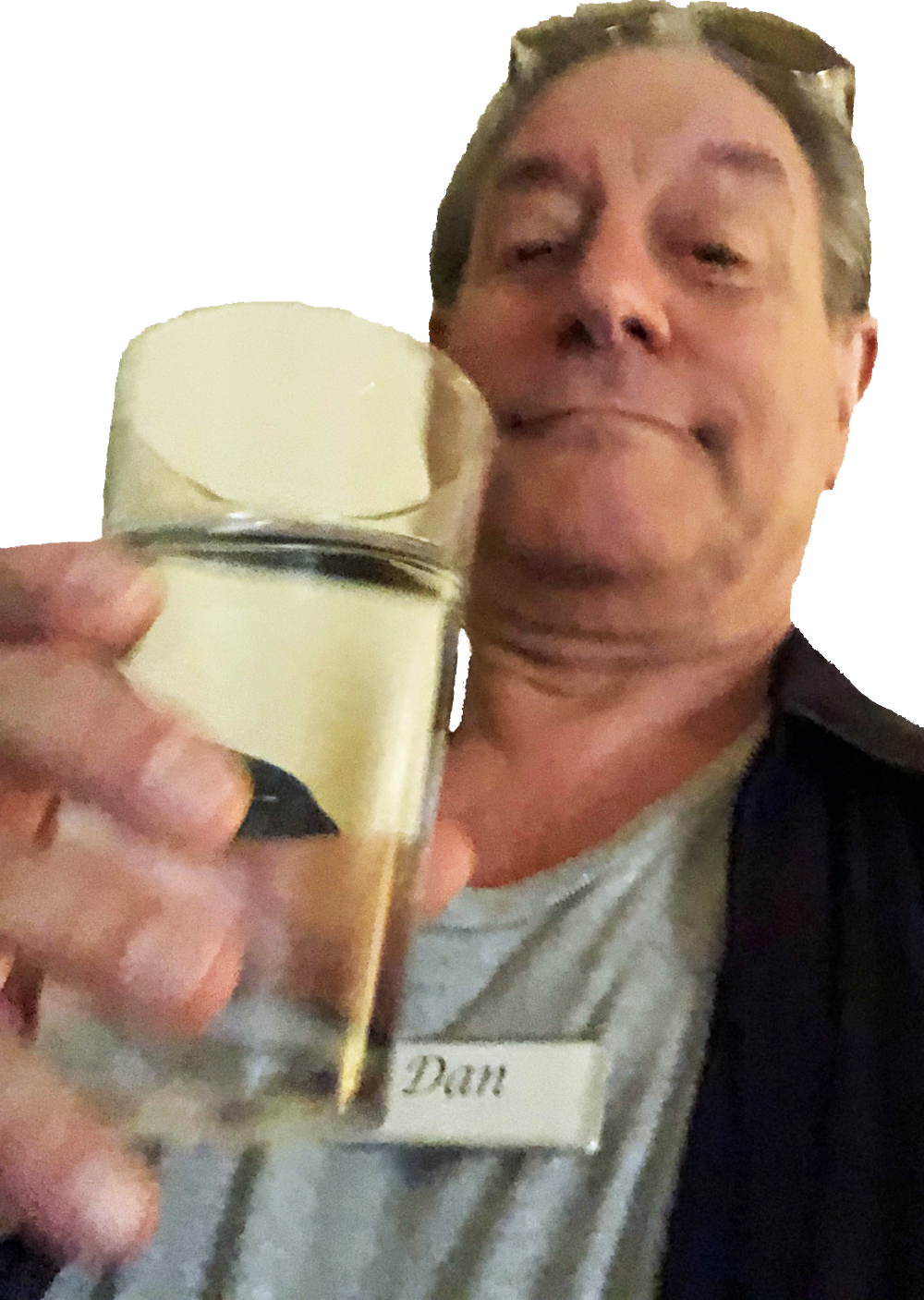| The two main themes here: vegan/SOS eating, and fasting |
The Big Picture
We eat all wrong. What we should be eating is the foods for which our bodies evolved:
plant-based and unrefined.
That excludes meat, fish, and dairy.
Also avoid salt, oil, and sugar ("SOS").
And processed foods (most things that
come in a package, a box or a can) including refined grains.
This diet is called "SOS Vegan".
However,
Dr. Campbell (The
China Study -- life-changing! Read it!) urges us to define it not by what's
excluded (as vegans do, and I did in the paragraph above) but by what we should
eat: whole foods, plant based (WFPB).
This lifestyle change is not easy
but it's oh so worth it.
We should also fast (i.e. completely stop eating) occasionally to let our gut
microbiome
and other bodily systems self-regulate.
The body heals itself far better than any pill or procedure if we get out of the way
and let it.
Dense
How much we eat is important, too. The issue is calorie density.
Calorie density is the number of calories in a bite of a particular food.
Most animal and processed foods have high calorie density.
Most plant foods have low calorie density.
Calorie-dense foods were not part of our ancestors' diets.
They trick our satiety receptors so we eat even when we've had enough.
The best way to avoid this trap is to start meals with low calorie-dense foods --
lots of them -- so we're nearly full by the time we get to the dense stuff.
A goal of plant-based diets is 15-18% of calories from fats.
This is hard to achieve without a few high-fat-density elements
such as avocados and nuts. But we don't need much of these
(half an avocado, an ounce of nuts) to get there.
SOS!
Being vegan is not enough. There are plenty of unhealthy vegans.
And there is plenty of non-animal-based food that is not good for us.
Coca-cola and Oreo cookies are vegan.
Healthful eating demands, in addition to the no-animal
foods rule of veganism, not eating "SOS" -- salt, oil, and sugar.
These are man-made additives and they have ill effects.
The healthy way to eat is SOS-free
vegan.
Getting Well
The range of ailments that can be cured (yes, cured, not just "managed", as modern
healthcare commonly does for chronic diseases) is astonishing: hypertension,
type 2 diabetes, rheumatoid arthritis, lupus, multiple sclerosis, and even
lymphoma (blood cancer). Through fasting and diet change, many thousands
(and yes, documented in peer-reviewed scientific journals) of such cases
have been achieved.
There are lots of ways and places (even at home) to fast, but if we're undertaking
a fast of more than four or five days, it's best done with medical
supervision. The risk is that electrolytes (blood salts, a delicate balance)
could get out of whack. It's rare, but we want to keep an eye on it and
catch it before it becomes life-threatening.
|
A lovely side effect is weight loss... When we don't eat, we lose weight.
Who knew?
I have done an 18-day medically-supervised water-only fast at TrueNorth Health
in Santa Rosa, California. People come from all over the world to do this there.
Many are desperate for cures, having exhausted more "traditional" approaches.
Tradition
Why the quotes around "traditional"? Because fasting is actually traditional.
Every major religion prescribes an annual fast of some kind.
It's not a random coincidence; it's handed-down wisdom.
Not Starving
Our bodies evolved to sustain lengthy food deprivations.
It's almost unique in the animal kingdom.
For example, if we withhold food from a chimp, it will die in just a few days.
Humans, on the other hand, can go without food for weeks, even months.
The TrueNorth people won't let us go longer than 40 days, but elsewhere, fasts
lasting even hundreds of days have been accomplished.
How Fasting Works
What are the body's energy storage mechanisms that enable us to fast?
The most readily-accessed stored energy is circulating glucose.
When we fast, this is consumed in a day or two.
Then we go to glycogen in the liver and skeletal muscle.
It is converted to glucose that feeds our organs.
That gets used up in about three days.
Next we go to the third energy store: adipose (fat) tissue.
For weight loss, this is the payoff; now
our spare tire, love handles, saddlebags, and man-boobs start to dwindle.
It supplies energy to get us through weeks
of fasting. And we'll feel great!
When adipose tissue is used up, we enter a phase that is unhealthful;
we consume muscle and other tissue that we'd rather keep.
TrueNorth's 40-day limit, long as it sounds,
is short enough to keep even a slender person safe.
Here's an overview of the science
(a chapter from a physiology textbook).
Feed Your Head*
So we have evolved all these ways to store and recover energy.
Why do we need them? Before we had agriculture (the last 10,000
years or so; insignificant in evolutionary terms) food scarcity
was common. If a body couldn't handle it, it died. Natural
selection selected the ones who could. They are our ancestors.
But why do we need this reliable energy supply?
To feed our huge brains! Brains cannot go without energy
for even a short time, and they need a lot of it.
Our bodies evolved to deliver
that energy reliably, even when food is scarce.
We're built to fast.
* Thank you, Jefferson Airplane/White Rabbit
|
Luminaries of the Good Diet/Fasting Movement
 |
Neal Barnard MD -- Early researcher and promoter of
plant-based diets. His web site:
www.pcrm.org/good-nutrition. And here is one of his videos
-- about effects of diet on cognitive decline (Alzheimer's).
|
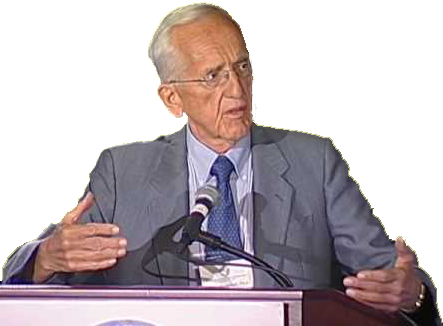 |
T. Colin Campbell PhD -- Founded the
T. Colin Campbell Center for Nutrition Studies.
Wrote the groundbreaking book, The China Study, one of the most important books about diet and health ever written.
Enthusiastically recommended reading for anyone who eats... read it and live!
|
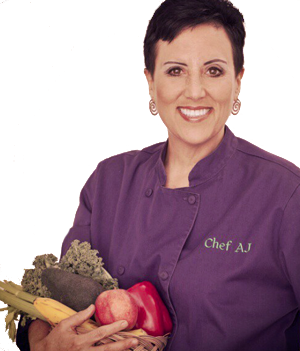 |
Chef AJ --
Enthusiastic creator of healthful recipes
|
 |
Caldwell Esselstyn MD -- Creator of the
Prevent & Reverse Heart Disease Program.
A pioneer/hero of the WFPB (whole food, plant based) movement. One of the first to realize
(in the 50s) that, to prevent heart disease,
America's medical heroics (angiographic and surgical interventions)
are useless (and worse) compared to the WFPB diet.
|
 |
Alan Goldhamer DC -- Founded TrueNorth and co-authored
The Pleasure Trap.
TrueNorth is a residential clinic where attendees undergo medically-supervised fasts and
receive education on medical and lifestyle topics.
It is also the home of the TrueNorth Foundation including a research center,
investigating issues related to diet and health,
with on-site outpatient medical staff and facilities, a clinical lab, a speakers bureau
(to educate mainstream clinicians), and its own
federally-certified institutional review board (IRB) and can thus receive federal grants.
They collaborate with the reknowned Buck
Institute for Research on Aging.
|
 |
Michael Greger MD -- runs the superb NutritionFacts web site
with lots of evidence-based nutrition videos.
For example, look up artery function. It tells us about the
effects on cardiac and vascular health of coffee, chocolate, blueberries,
acai berries, vinegar, olive oil, and so on.
See also
www.drgreger.org. He
wrote How
Not to Die (good but I'd prefer less emphasis on micronutrients and more on whole diet).
|
 |
Josh Helman MD -- Promoter of plant-based diets.
www.drhelman.com.
Here is his
handout about reversing disease through diet.
|
 |
Kaiser -- In 2013, published Nutritional Update for Physicians: Plant-Based Diets,
an excellent study of the health benefits of plant-based diets,
including a survey of the variations on this theme
(Ornish, vegan, ovo-lacto, Mediterranean, etc.)
But do they tell their patients about it?
Alas, even at "enlightened"
Kaiser, habit and tradition outweigh good health care.
|
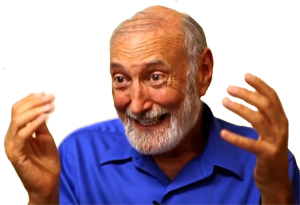 |
Michael Klaper MD -- Physician, award-winning speaker, author of the
Vegan Health Study.
www.doctorklaper.com.
Good bibliography here.
Notable quotes:
"Welcome to Camp Stop-Kidding-Yourself."
"Moderation kills."
"Be careful, very careful with 'normal'."
|
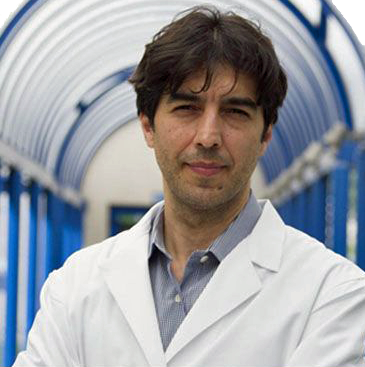 |
Valter Longo PhD -- www.valterlongo.com/
-- USC-based Valter Longo Foundation including Longevity Institute and How to Stay Young.
|
 |
John McDougall MD -- Has changed so many lives... another hero.
Dr. McDougall's Health and Medical
Center -- "It's the food."
|
 |
Jeff Novick MS RD -- Lots of
great info and recipes
|
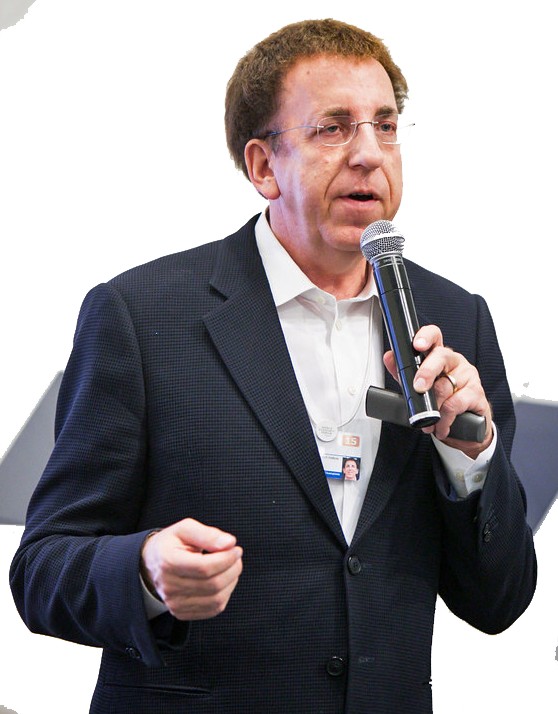 |
Dean Ornish MD -- Preaches what he calls "Lifestyle Medicine"
www.ornish.com
|
 |
Nathan Pritikin MD -- Pritikin died in the 80s but his legacy lives on,
both in the science of healthful nutrition that he pioneered and in the
Pritikin Longevity Center.
I attended a two-week program at his Center back in the early 80s (when
it was in Santa Monica, CA; today it is in Miami, FL) and found it trailblazing
even then.
|
Essential Nutrients
There are several nutrients that are essential for our bodies: amino acids, vitamins, etc.
None come only from animal products. We can get everything we need from plants.
Here are the essential nutrients:
- Carbohydrates (supply energy)
- Protein/amino acids (for building and repair of body tissues)
The nine essential amino acids:
- Histidine
- Isoleucine
- Leucine
- Lysine
- Methionine
- Phenylalanine
- Threonine
- Tryptophan
- Valine
- Fats
- Vitamins
- Minerals
- Water
Fiber
Dietary fibers (nondigestible carbohydrates) are not listed among the essential nutrients
(though they are essential) because they are a combination of them.
They are also called probiotics because they are what the intestinal microbiome (the 5 lbs of
bacteria that live in our gut, eat a lot of the food we send down, and poop a
lot of the nutrients we require) are absolutely essential for human life.
What these bacteria eat determines what they poop.
Meat makes them poop bad stuff, e.g. chemicals that make cholesterols stick to blood vessel
walls. Fiber makes them poop the stuff our bodies want.
Canaries in the Coal Mine
Systolic blood pressure (SBP) > 115 mm Hg is the single most predictive metric for death.
Erectile dysfunction (ED) is an early indicator of occluded arteries.
Viagra just fixes the symptom.
|
Some Medical Facts
What is normal total cholesterol?
- General population: 200 mg/dL
- Plant-based eaters: 150 mg/dL
Antihypertensive drugs:
- diuretics (make our kidneys work even harder)
- beta-blockers
- angiotensin-converting enzyme inhibitors
- angiotensin receptor blockers
- calcium channel blockers
Fasting can get us off all of these.
 In self-serving collaboration with government, food industries have promoted myths that have led to detrimental health effects on Americans. Some examples:
In self-serving collaboration with government, food industries have promoted myths that have led to detrimental health effects on Americans. Some examples:
- Myth: Protein comes only from meat.
Fact: We can get all the protein we need from plants.
- Myth: Calcium comes only from dairy.
Fact: We can get all the calcium we need from plants.
- Myth: The heavily-publicized
FDA food pyramid
(rebranded "food plate" in 2011) promotes healthy eating.
Fact: Much of the food touted there is actually bad for us, and the proportions are wrong, too.
- Myth: Some oils may be bad for us, but olive oil is good.
Fact: They are all bad. Oils distort the shapes of our normally-biconcave
red blood cells, making them spikey so they scar our endothelia (artery linings) and make them
susceptible to plaque adhesion, i.e. atherosclerosis.
Alas,
even olive oil.
- Myth: Increase your calorie and protein intake if you're receiving chemotherapy. This is the conventional
wisdom spouted by oncologists.
Fact: Fasting protects normal cells and sensitizes cancer cells (so the
chemo works better).
- Myth: Statins help you live longer.
Fact: They do decrease your serum cholesterol but
there is some evidence (largely disproven)
that they also increase your cancer risk.
And now in 2024 we are seeing that Plant-Based Diet a Boon for Men With Prostate Cancer (Medscape, Feb. 14 (Valentine's Day!), 2024).
|
Important Videos and Movies
|
"What if one simple change could save you from chronic diseases such as diabetes and heart disease? Take a deep dive into the film that has influenced millions around the world."
|
"...the groundbreaking follow-up film from the creators of the award-winning documentary Cowspiracy. The film exposes the collusion and corruption in government and big business that is costing us trillions of healthcare dollars, and keeping us sick.
"What The Health is a surprising, and at times hilarious, investigative documentary that will be an eye-opener for everyone concerned about our nation's health and how big business influences it."
|
"More than 700,000 Americans die of heart disease each year. For many, death is the first symptom of the disease. A simple heart scan could save many of these lives, but THE WIDOWMAKER reveals a hidden battle in America's medical establishment pitting prevention against intervention by keeping scans in the shadows while cardiac surgeries soar.
"Featuring cardiologists, heart attack survivors and lawmakers, THE WIDOWMAKER will change the way you think about heart disease and it just might save your life. "
| |
Alan Goldhamer, John McDougall, Doug Lisle, and others talk about water fasting and much more.
|
"...an inspiring tale of healing and human connection.
Part road trip, part self-help manifesto, FAT, SICK & NEARLY DEAD
...presents an unconventional
and uplifting story of two men ...who each realize that the only person
who can save them is themselves."
|
From Kaiser and HBO:
"To win, we have to lose. The four-part HBO Documentary Films series, The Weight of The Nation explores the obesity epidemic in America."
|
|
Presented by James Cameron, Arnold Schwarzenegger, Jackie Chan, Lewis Hamilton, Novak Djokovic and Chris Paul
-- a revolutionary new film about meat, protein and strength.
|
A 2024 groundbreaking documentary from Executive Producers seven-time NBA All-Star Chris Paul and 7X Grammy winner Billie Eilish.
Influencers from Hip Hop, medicine, sports, entertainment, policy, and politics weigh in on the singular most deadly threat to American society that mainstream media doesn't want to talk about.
|
Food Resources
Lots of people sell foods and supplements for practitioners of vegan diets
But be careful! All vegan food is not made equal. Nothing in basic veganism
says we can't have salt, oil, or sugar. So there are plenty of fat, unhealthy
vegans. Here are some vendors of the good stuff.
- Leafside -- "Simple, plant-based success"
- Mama Sezz -- "Whole food plant-based meals, delivered"
The Evidence
There is a substantial body of research on vegan diets and fasting regimens.
Some of the research
on these topics has been conducted at TrueNorth and can be found here.
The TrueNorth Foundation conducts research institution-quality research and
has its own institutional review board (IRB) certified by the FDA.
|
